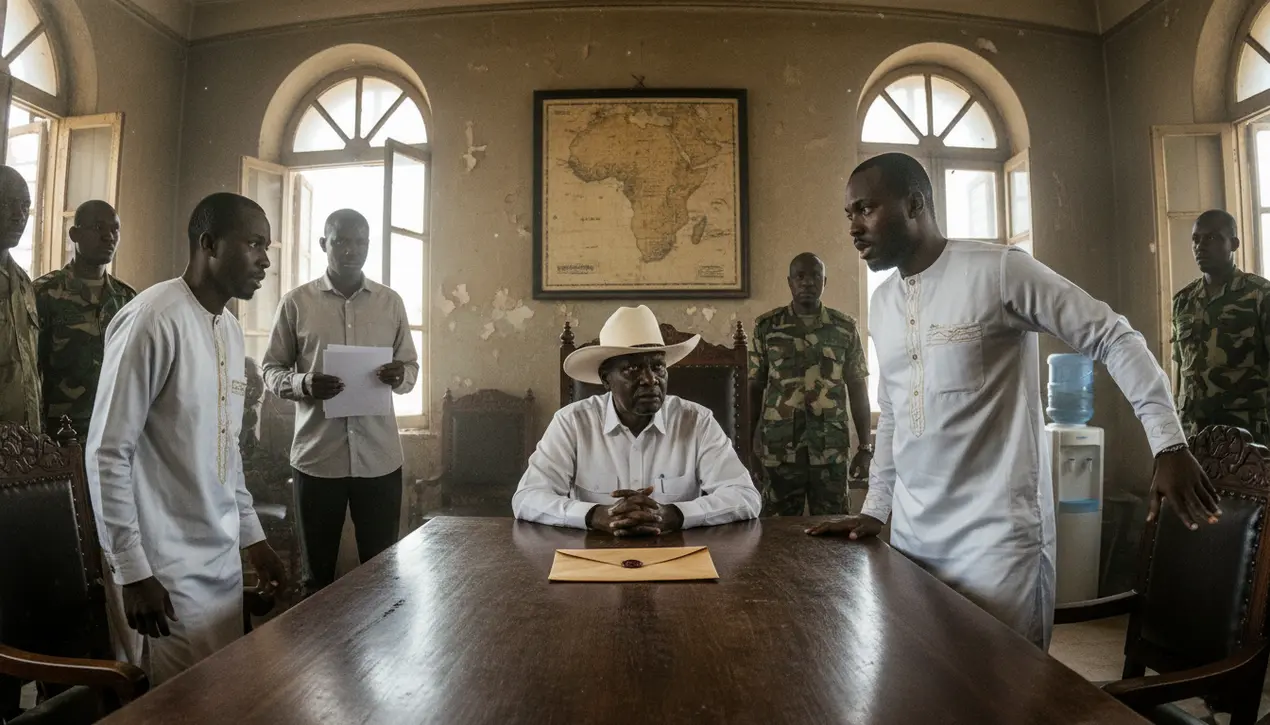
Politicsgovernments & cabinetsCabinet Reshuffles
South Sudan President Kiir Fires Sanctioned Vice-President Bol Mel.
RO
Robert Hayes
2 hours ago7 min read2 comments
In a move that reverberates through the fragile political architecture of the world's youngest nation, South Sudan's President Salva Kiir has wielded his executive authority to dismiss Vice-President Bol Mel, a figure whose tenure has been shadowed by the long arm of international sanction. This is not merely a cabinet reshuffle; it is a seismic event in Juba's power dynamics, recalling the kind of political realignments that have historically preceded periods of either tentative stability or renewed conflict.Bol Mel, a wealthy businessman and close ally whose influence was built not just on political maneuvering but on substantial economic holdings, had been publicly tipped as a potential successor to Kiir, a status that makes his abrupt removal all the more consequential. The official grounds for the dismissal remain cloaked in the typical opacity of the Kiir administration, but the specter of the US sanctions looms large over the decision.The United States Department of the Treasury had previously designated Mel for his alleged role in corruption, accusing him of engaging in bribery and misappropriating public assets, actions that it stated 'undermine the peace, stability, and security of South Sudan. ' This external pressure creates a complex diplomatic calculus for Kiir, forcing a balance between internal patronage networks and the imperative of maintaining some semblance of legitimacy in the eyes of international donors and financial institutions.The dismissal can thus be interpreted as a tactical concession, a signal to Washington and other partners that Kiir is, at least superficially, addressing concerns over graft, even as it simultaneously neutralizes a potential rival from within his own inner circle. The historical parallel is stark; this is reminiscent of the factional purges that have characterized South Sudanese politics since its independence in 2011, where the 2013 split with Riek Machar descended into a brutal civil war.While the current situation may not portend a return to full-scale conflict, it undoubtedly destabilizes the delicate power-sharing agreement that forms the bedrock of the nation's revitalized peace accord. The position of Vice-President is not just a title; it is a key pillar in an ethnically and politically balanced government designed to hold the country together.Removing a figure of Mel's stature risks alienating his constituency and could provoke a realignment of loyalties among other powerful elites, potentially unraveling the hard-won, albeit tenuous, peace. Analysts will be watching closely to see who Kiir appoints as a replacement, a decision that will serve as the truest indicator of his intentions—whether he seeks to consolidate power within his own Dinka ethnic group, appease another signatory to the peace agreement, or attempt a genuine gesture of national unity.The consequences extend beyond the palace gates in Juba. For the long-suffering citizens of South Sudan, this high-level political drama unfolds against a backdrop of extreme humanitarian crisis, with widespread food insecurity and displacement.A stable and functional government is not a political abstraction but a prerequisite for delivering basic services and security. The removal of a sanctioned official might win brief plaudits in foreign capitals, but if it triggers internal factionalism and political paralysis, the ultimate price will be paid by the ordinary South Sudanese who have endured years of violence and instability. The firing of Bol Mel is therefore more than a personnel change; it is a critical juncture, a test of whether South Sudan's leadership can navigate its profound internal contradictions or if it is destined to repeat the tragic cycles of its own short, turbulent history.
#featured
#South Sudan
#Salva Kiir
#Bol Mel
#vice-president
#sacked
#sanctions
#corruption
#succession
Stay Informed. Act Smarter.
Get weekly highlights, major headlines, and expert insights — then put your knowledge to work in our live prediction markets.
Comments
Loading comments...
© 2025 Outpoll Service LTD. All rights reserved.